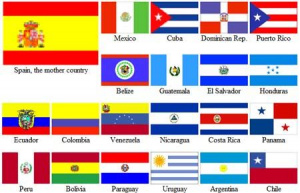Difference between revisions of "Language/Spanish/Grammar/How-to-Use-Have"
m (Quick edit) |
m (Quick edit) |
||
| Line 3: | Line 3: | ||
<div class="pg_page_title">Spanish Grammar - How to Use "Have"</div> | <div class="pg_page_title">Spanish Grammar - How to Use "Have"</div> | ||
Hi [https://polyglotclub.com/language/spanish Spanish] learners! 😊<br>In this lesson, we will learn how to use "have" in Spanish. "Have" can be translated to "tener" or "haber" in Spanish, depending on the context. It is essential to understand the proper use of both verbs to speak Spanish fluently. | |||
== | __TOC__ | ||
== Tener == | |||
"Tener" is used to indicate possession or ownership. In English, "have" is also used to show possession, and the sentences often follow the same structure. Let's take a look at some examples: | |||
{| class="wikitable" | |||
! Spanish !! Pronunciation !! English | |||
|- | |||
| Tengo un gato. || "ten-go un ga-to" || I have a cat. | |||
|- | |||
| ¿Tienes un carro? || "tien-es un ca-rro" || Do you have a car? | |||
|- | |||
| No tengo hambre. || "no ten-go am-bre" || I'm not hungry. | |||
|- | |||
| Ella tiene una casa en la playa. || "e-ya tien-e u-na ca-sa en la pla-ya" || She has a house on the beach. | |||
|} | |||
In Spanish, the verb "tener" is also used to indicate age. For example, "Tengo 30 años" means "I am 30 years old." | |||
Sometimes, "tener" is used in idiomatic expressions that do not have a direct translation in English. For example, "tener ganas" means "to feel like" or "to be in the mood for." | |||
{| class="wikitable" | {| class="wikitable" | ||
! Spanish !! Pronunciation !! English | |||
|- | |- | ||
| Tengo ganas de comer pizza. || "ten-go gan-as de co-mer pi-za" || I feel like eating pizza. | |||
|- | |||
| Tenemos que hacer la tarea. || "te-ne-mos ke ha-cer la ta-re-a" || We have to do the homework. | |||
|} | |||
== Haber == | |||
"Haber" is used to form compound tenses such as the present perfect and the past perfect. In these cases, "haber" is not translated as "have" but as the auxiliary verb "have," as in "I have eaten" or "I had eaten." | |||
In the present perfect tense, "haber" is combined with the past participle of the main verb. For example, "He comido" means "I have eaten." | |||
{| class="wikitable" | |||
! Spanish !! Pronunciation !! English | |||
|- | |- | ||
| | | He comido. || "e co-mi-do" || I have eaten. | ||
|- | |- | ||
| | | Has trabajado mucho. || "has tra-ba-ja-do mu-cho" || You have worked a lot. | ||
|- | |- | ||
| | | Ha vivido aquí por diez años. || "ha vi-vi-do a-ki por di-ez an-os" || He/She has lived here for ten years. | ||
|} | |||
In the past perfect tense, "haber" is combined with the past participle of the main verb. For example, "Había comido" means "I had eaten." | |||
{| class="wikitable" | |||
! Spanish !! Pronunciation !! English | |||
|- | |- | ||
| | | Había comido. || "ha-bia co-mi-do" || I had eaten. | ||
|- | |- | ||
| | | Habías trabajado mucho. || "ha-bi-as tra-ba-ja-do mu-cho" || You had worked a lot. | ||
|- | |- | ||
| | | Había vivido aquí por diez años. || "ha-bia vi-vi-do a-ki por di-ez an-os" || He/She had lived here for ten years. | ||
|} | |} | ||
Note that "haber" can also be used as impersonal expressions, such as "hay" which means "there is" or "there are." | |||
{| class="wikitable" | |||
! Spanish !! Pronunciation !! English | |||
|- | |||
| Hay una fiesta en mi casa. || "hay u-na fies-ta en me kasa" || There is a party at my house. | |||
|- | |||
| ¿Hay un baño aquí cerca? || "¿hay un ba-ño a-ki ker-ka?" || Is there a bathroom nearby? | |||
|} | |||
== Dialogue == | == Dialogue == | ||
Let's see how "tener" and "haber" are used in a dialogue between two friends: | |||
* | * María: Hola, Juan. ¿Tienes planes para hoy? (Hi, Juan. Do you have any plans for today?) | ||
* | * Juan: Sí, tengo que trabajar. (Yes, I have to work.) | ||
* | * María: ¡Qué lástima! Yo tengo ganas de ir al cine. (What a pity! I feel like going to the movies.) | ||
* | * Juan: Lo siento, pero tengo mucho trabajo que hacer. (I'm sorry, but I have a lot of work to do.) | ||
* María: ¿Has comido ya? (Have you eaten already?) | |||
* Juan: Sí, ya he comido. (Yes, I have already eaten.) | |||
== | == Practice Exercise == | ||
Fill in the blanks with the correct form of "tener" or "haber." | |||
1. Yo _____________ muchos amigos en España. (I have many friends in Spain.) | |||
2. ¿_________ tú alguna vez en un barco? (Have you ever been on a boat?) | |||
3. Él ____________ una sorpresa para ti. (He has a surprise for you.) | |||
4. Nosotros ____________ que ir al supermercado. (We have to go to the supermarket.) | |||
5. El profesor ___________ explicado todo muy bien. (The teacher has explained everything very well.) | |||
Answers: 1. tengo 2. Has 3. tiene 4. tenemos 5. ha | |||
To improve your [[Language/Spanish|Spanish]] [[Language/Spanish/Grammar|Grammar]], you can also use the [https://polyglotclub.com Polyglot Club] website. [https://polyglotclub.com/find-friends.php?search=send&d=0&f=36&offre1=119 Find native speakers] and ask them any [https://polyglotclub.com/language/spanish/question questions]! | |||
<hr>➡ If you have any questions, please ask them in the comments section below.<br>➡ Feel free to edit this wiki page if you think it can be improved. 😎 | <hr>➡ If you have any questions, please ask them in the comments section below.<br>➡ Feel free to edit this wiki page if you think it can be improved. 😎 | ||
| Line 55: | Line 99: | ||
{{#seo: | {{#seo: | ||
|title=Spanish Grammar - How to Use "Have" | |title=Spanish Grammar - How to Use "Have" | ||
|keywords= | |keywords=Spanish grammar, how to use have, tener, haber, present perfect, past perfect, Spanish idiomatic expressions | ||
|description= | |description=Learn how to use "have" in Spanish with this comprehensive grammar lesson. Includes examples, practice exercises, and idiomatic expressions. Improve your Spanish today! | ||
}} | }} | ||
{{Spanish-Page-Bottom}} | {{Spanish-Page-Bottom}} | ||
Revision as of 02:03, 3 March 2023
Hi Spanish learners! 😊
In this lesson, we will learn how to use "have" in Spanish. "Have" can be translated to "tener" or "haber" in Spanish, depending on the context. It is essential to understand the proper use of both verbs to speak Spanish fluently.
Tener
"Tener" is used to indicate possession or ownership. In English, "have" is also used to show possession, and the sentences often follow the same structure. Let's take a look at some examples:
| Spanish | Pronunciation | English |
|---|---|---|
| Tengo un gato. | "ten-go un ga-to" | I have a cat. |
| ¿Tienes un carro? | "tien-es un ca-rro" | Do you have a car? |
| No tengo hambre. | "no ten-go am-bre" | I'm not hungry. |
| Ella tiene una casa en la playa. | "e-ya tien-e u-na ca-sa en la pla-ya" | She has a house on the beach. |
In Spanish, the verb "tener" is also used to indicate age. For example, "Tengo 30 años" means "I am 30 years old."
Sometimes, "tener" is used in idiomatic expressions that do not have a direct translation in English. For example, "tener ganas" means "to feel like" or "to be in the mood for."
| Spanish | Pronunciation | English |
|---|---|---|
| Tengo ganas de comer pizza. | "ten-go gan-as de co-mer pi-za" | I feel like eating pizza. |
| Tenemos que hacer la tarea. | "te-ne-mos ke ha-cer la ta-re-a" | We have to do the homework. |
Haber
"Haber" is used to form compound tenses such as the present perfect and the past perfect. In these cases, "haber" is not translated as "have" but as the auxiliary verb "have," as in "I have eaten" or "I had eaten."
In the present perfect tense, "haber" is combined with the past participle of the main verb. For example, "He comido" means "I have eaten."
| Spanish | Pronunciation | English |
|---|---|---|
| He comido. | "e co-mi-do" | I have eaten. |
| Has trabajado mucho. | "has tra-ba-ja-do mu-cho" | You have worked a lot. |
| Ha vivido aquí por diez años. | "ha vi-vi-do a-ki por di-ez an-os" | He/She has lived here for ten years. |
In the past perfect tense, "haber" is combined with the past participle of the main verb. For example, "Había comido" means "I had eaten."
| Spanish | Pronunciation | English |
|---|---|---|
| Había comido. | "ha-bia co-mi-do" | I had eaten. |
| Habías trabajado mucho. | "ha-bi-as tra-ba-ja-do mu-cho" | You had worked a lot. |
| Había vivido aquí por diez años. | "ha-bia vi-vi-do a-ki por di-ez an-os" | He/She had lived here for ten years. |
Note that "haber" can also be used as impersonal expressions, such as "hay" which means "there is" or "there are."
| Spanish | Pronunciation | English |
|---|---|---|
| Hay una fiesta en mi casa. | "hay u-na fies-ta en me kasa" | There is a party at my house. |
| ¿Hay un baño aquí cerca? | "¿hay un ba-ño a-ki ker-ka?" | Is there a bathroom nearby? |
Dialogue
Let's see how "tener" and "haber" are used in a dialogue between two friends:
- María: Hola, Juan. ¿Tienes planes para hoy? (Hi, Juan. Do you have any plans for today?)
- Juan: Sí, tengo que trabajar. (Yes, I have to work.)
- María: ¡Qué lástima! Yo tengo ganas de ir al cine. (What a pity! I feel like going to the movies.)
- Juan: Lo siento, pero tengo mucho trabajo que hacer. (I'm sorry, but I have a lot of work to do.)
- María: ¿Has comido ya? (Have you eaten already?)
- Juan: Sí, ya he comido. (Yes, I have already eaten.)
Practice Exercise
Fill in the blanks with the correct form of "tener" or "haber."
1. Yo _____________ muchos amigos en España. (I have many friends in Spain.) 2. ¿_________ tú alguna vez en un barco? (Have you ever been on a boat?) 3. Él ____________ una sorpresa para ti. (He has a surprise for you.) 4. Nosotros ____________ que ir al supermercado. (We have to go to the supermarket.) 5. El profesor ___________ explicado todo muy bien. (The teacher has explained everything very well.)
Answers: 1. tengo 2. Has 3. tiene 4. tenemos 5. ha
To improve your Spanish Grammar, you can also use the Polyglot Club website. Find native speakers and ask them any questions!
➡ If you have any questions, please ask them in the comments section below.
➡ Feel free to edit this wiki page if you think it can be improved. 😎

